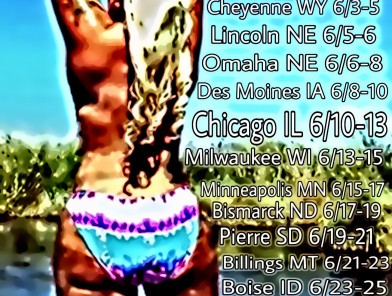Fifth Circuit: Law Serves a Significant Government Interest
On July 14, 2025, the U.S. Court of Appeals for the Fifth Circuit ruled that Texas’s restriction barring individuals under 21 from working in strip clubs and similar adult businesses does not violate the First Amendment. The court concluded that the law is justified by the state's compelling interest in preventing sexual trafficking and protecting vulnerable populations from exploitation.
The decision affirms a lower court’s ruling and gives the green light for continued enforcement of a controversial statute that has drawn criticism from business owners, performers, and civil liberties advocates alike. The appellate panel maintained that although the regulation does limit where some adults can work, it does not suppress protected speech in a manner that would render it unconstitutional.
A Law Rooted in Anti-Trafficking Efforts
The Texas Legislature originally passed the measure with the goal of disrupting trafficking pipelines that officials claim often target younger workers within the adult entertainment industry. Lawmakers argued that those between 18 and 20 are particularly vulnerable to coercion and grooming, especially in environments where power dynamics are easily manipulated and oversight is limited.
Supporters of the law emphasized that raising the minimum working age is a preventative step, intended not to punish legal adults, but to cut off a known entry point for traffickers. They view the statute as part of a broader campaign to reinforce workplace protections and reduce the risk of abuse in adult businesses.
Industry Pushback and Constitutional Questions
Opponents of the legislation including club owners and First Amendment groups had argued that the law infringed on the constitutional rights of adults who are otherwise legally permitted to work. They claimed that the ban restricts access to lawful employment and unfairly discriminates against a segment of the population based on age.
Critics also warned that the law could drive some young workers underground, increasing the chances of them entering riskier, unregulated environments. For many performers and staff between 18 and 20 years old, the strip club industry had served as a relatively safe and financially viable option.
Nonetheless, the Fifth Circuit rejected these concerns, stating that the law was sufficiently tailored to serve a substantial government interest. The court pointed out that while speech may be involved in adult entertainment, the regulation does not target expression itself, but rather the context in which it occurs namely, within sexually oriented commercial venues.
Practical Implications and Broader Impact
Since its passage, the law has reshaped staffing policies at adult businesses across Texas. Those aged 18 to 20 have been barred from not only performing but also working in ancillary roles like bartending, cleaning, or providing security in venues deemed sexually oriented. Enforcement has reportedly included license threats and inspections to ensure compliance.
With the federal appeals court now siding with the state, the ruling may embolden other jurisdictions to consider similar age-based restrictions. The legal reasoning offers a potential roadmap for policymakers seeking to balance constitutional freedoms with social safeguards aimed at preventing exploitation.
For now, Texas stands firm in its stance: those under 21 will not be permitted to work in or enter businesses categorized as sexually oriented. Whether this decision marks a broader shift in how states regulate the adult entertainment industry remains to be seen, but the court's approval signals that lawmakers may have more leeway in crafting age-based workplace protections than previously assumed.













